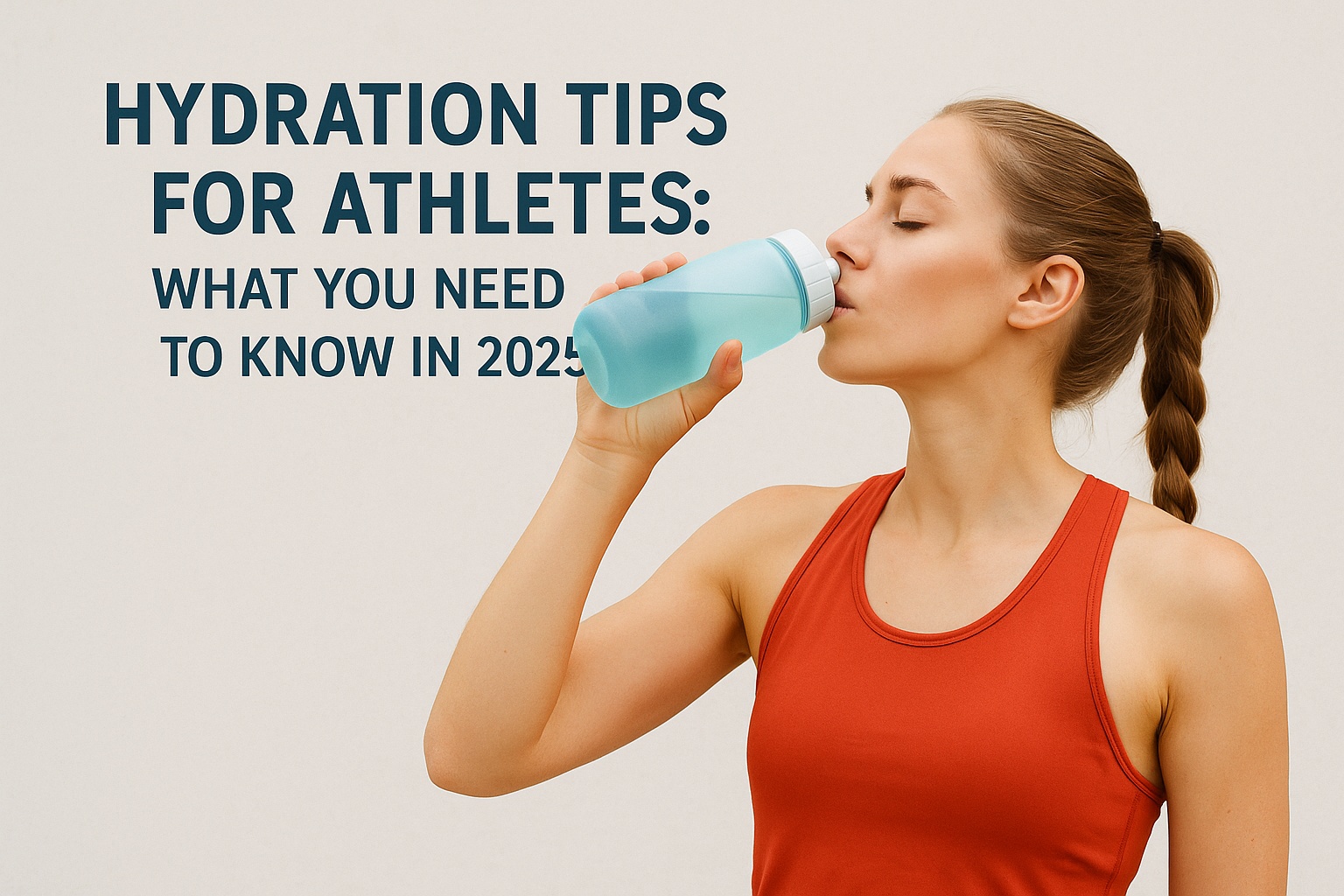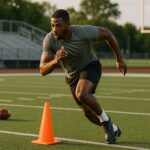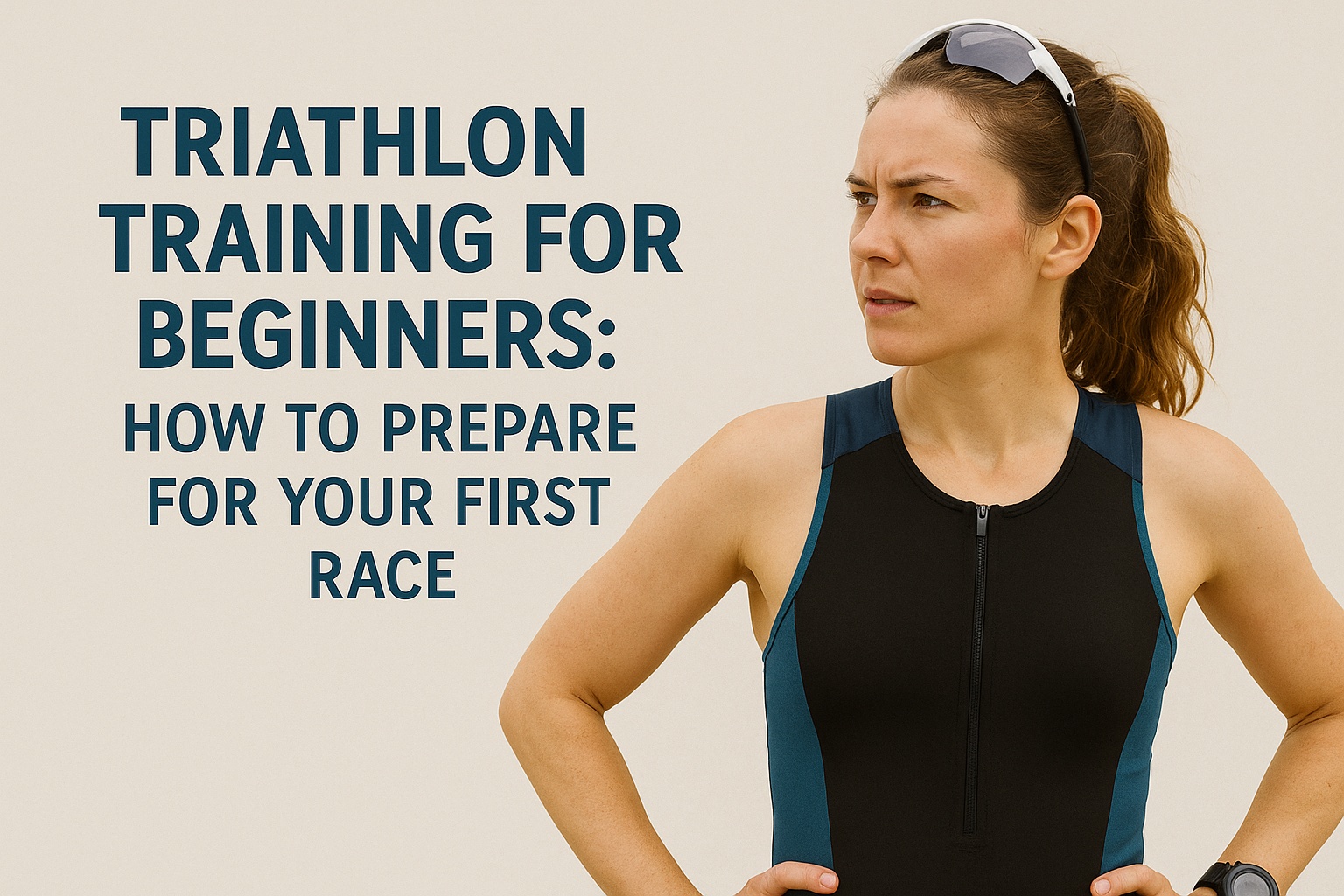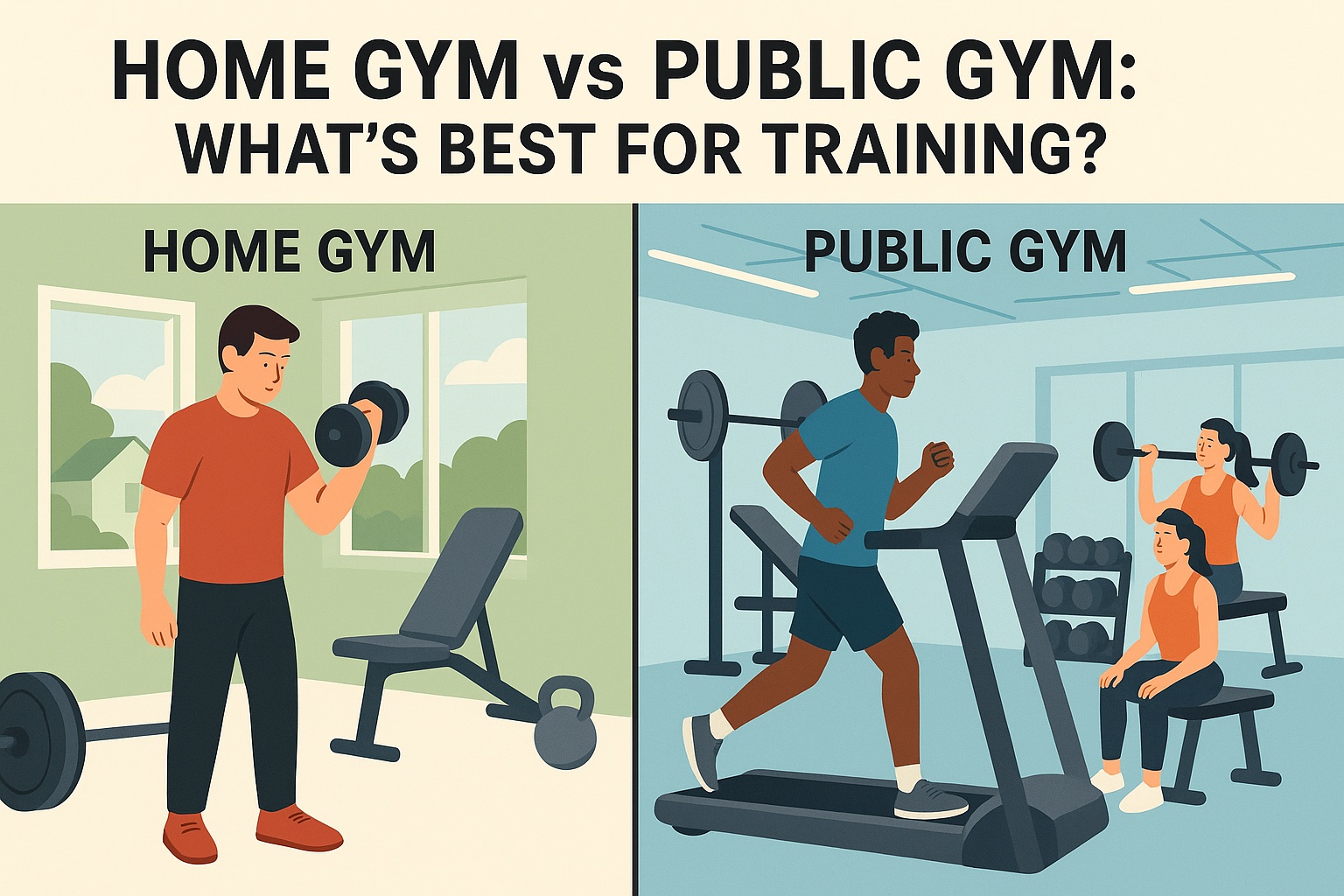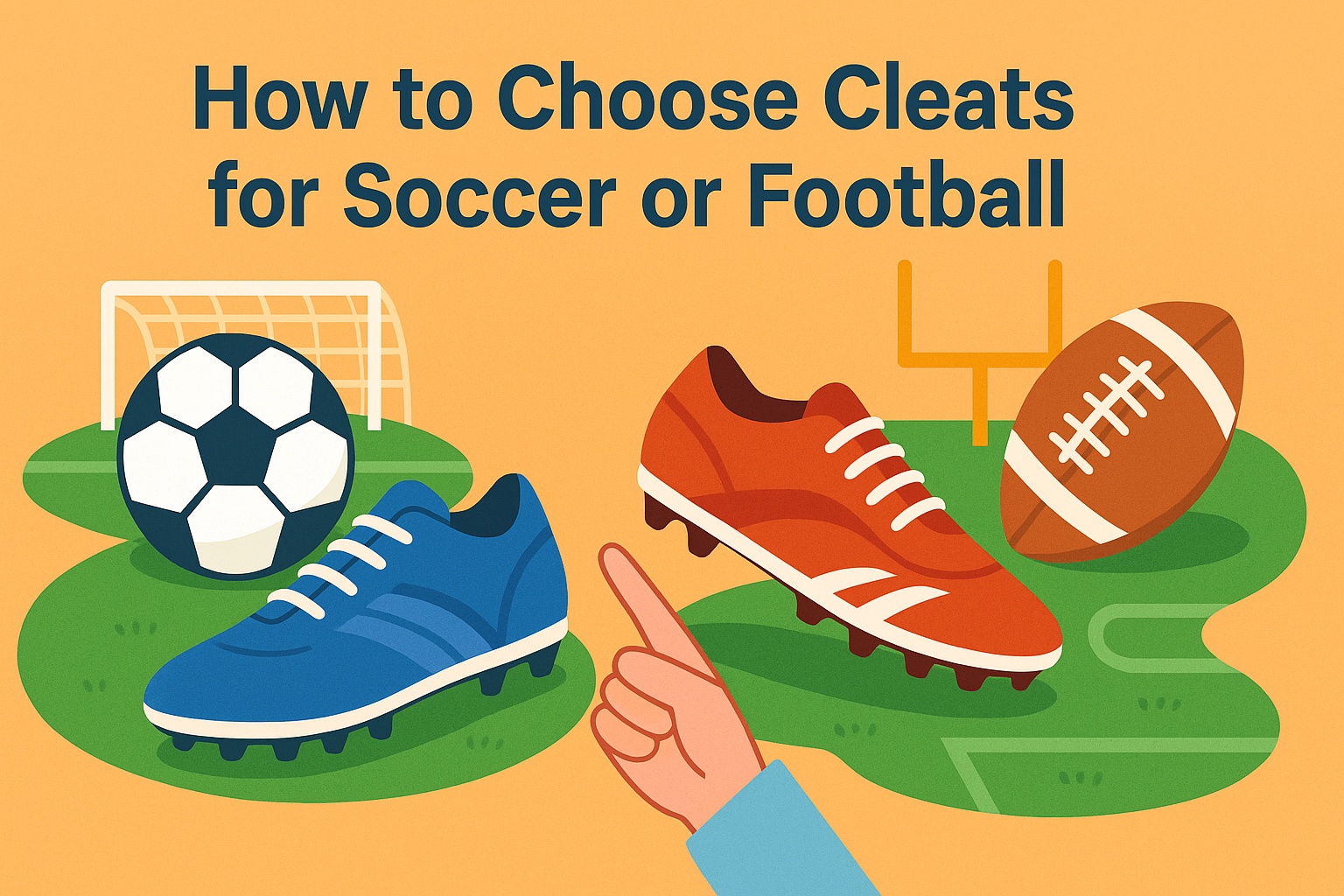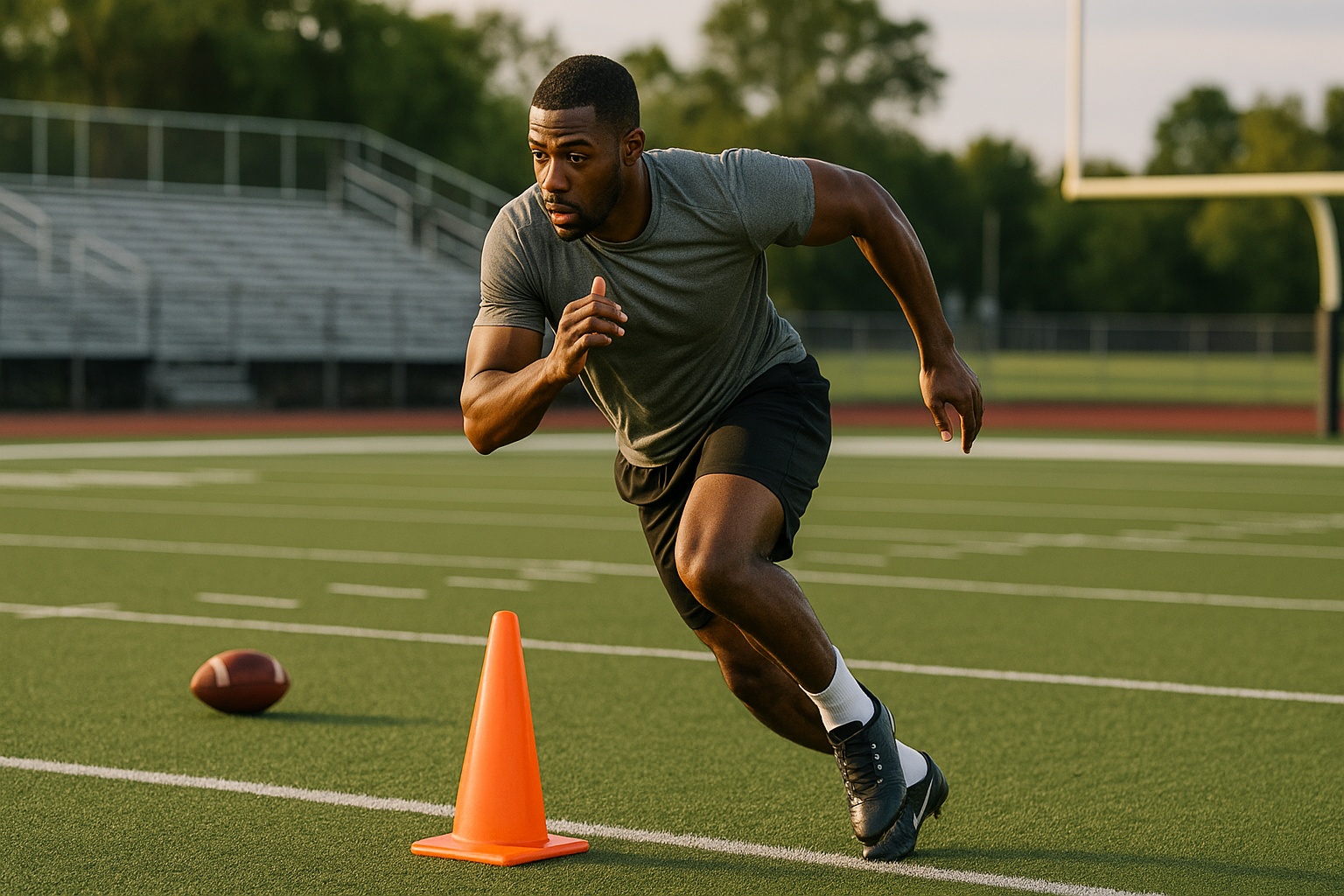Hydration Tips for Athletes: Stay Fueled, Focused, and Fast
In 2025, staying hydrated goes beyond just drinking water—it’s about optimizing fluid balance to fuel performance, speed up recovery, and avoid preventable injuries. Whether you’re a weekend warrior or an elite competitor, these hydration tips for athletes will help you stay one step ahead with smarter strategies that align with your goals, sport, and body type.
Why Hydration Matters in Athletic Performance
Even a 1–2% drop in hydration can impair cognitive function, endurance, and strength. Athletes lose fluid through sweat, breathing, and metabolic activity, especially during intense training or hot conditions. Replenishing lost fluids and electrolytes helps:
- Maintain energy levels and stamina
- Regulate body temperature
- Prevent muscle cramps and fatigue
- Enhance focus and reaction time
- Speed up post-workout recovery
1. Start the Day Hydrated
Begin your morning with 16–20 ounces of water. After hours of sleep, your body wakes up dehydrated—even mild dehydration can affect your morning workouts and mental clarity. Add a pinch of sea salt or lemon for extra electrolyte support.
2. Hydrate Strategically Before Workouts
Don’t chug a bottle right before training. Instead, follow this schedule:
- 2–3 hours before: Drink 16–20 oz of water
- 15–30 minutes before: Sip 8–10 oz of water or sports drink if it’s a long or hot session
Pre-workout hydration helps prime your system for performance and reduces early fatigue.
3. Monitor Your Sweat Rate
Knowing your sweat rate helps tailor your fluid intake. Weigh yourself before and after training. For every pound lost, replace with 16–24 oz of fluid. This method provides a personalized hydration baseline to prevent under- or overhydration.
4. Choose the Right Hydration Type
Not all fluids are equal. Use the right mix for your activity:
- Water: Ideal for light sessions under 60 minutes
- Electrolyte drinks: Replace sodium, potassium, and magnesium lost in sweat
- Sports drinks (with carbs): Support energy during endurance workouts
- Coconut water: Natural option for light hydration
5. Rehydrate After Every Session
Recovery hydration is just as important as pre- and intra-workout fluid intake. Use this simple post-workout strategy:
- Weigh yourself post-workout
- Replenish 125–150% of the fluid lost (e.g., lose 1 lb = drink 20–24 oz)
- Combine with sodium, carbs, and protein for optimal recovery
Don’t wait until you’re thirsty—by then, you’re already behind.
6. Balance Electrolytes, Not Just Fluids
Electrolytes regulate nerve and muscle function. If you sweat heavily or train in heat, consider adding these:
- Sodium: Most critical electrolyte for athletes
- Potassium: Supports muscle contraction and heart function
- Magnesium: Reduces cramps and improves muscle recovery
- Calcium: Essential for muscle and bone strength
Choose products with clearly labeled electrolyte amounts and avoid sugar-loaded options.
7. Understand Signs of Dehydration
- Dry mouth and lips
- Fatigue or dizziness during exercise
- Dark yellow urine or infrequent urination
- Muscle cramps or slower recovery
- Drop in performance or focus
Don’t rely solely on thirst—it’s not always an accurate early signal for athletes.
8. Customize Hydration Based on Sport
Different sports require different hydration strategies:
- Endurance athletes (e.g., runners, cyclists): Sip 6–8 oz every 15–20 minutes during long sessions
- Team sports (e.g., soccer, football): Hydrate at every break with electrolyte support
- Strength athletes: Prioritize pre- and post-workout hydration with added sodium
9. Use Technology to Track Intake
Smart bottles and hydration apps now help track fluid consumption and remind you to sip. Wearables can monitor sweat loss and recommend personalized fluid replacement rates. In 2025, tech-assisted hydration is smarter and more accessible than ever.
Hydration Comparison Table for Athletes
| Hydration Option | Best For | Key Benefits |
|---|---|---|
| Water | Daily baseline, light activity | Replenishes fluids |
| Electrolyte drinks | Heavy sweat, hot conditions | Restores minerals lost in sweat |
| Sports drinks | Long workouts or games | Provides hydration + carbs |
| Coconut water | Light hydration + natural electrolytes | Potassium-rich and low sugar |
| Protein shakes with water | Post-workout recovery | Hydration + muscle repair |
Conclusion: Hydration Tips for Athletes Who Want to Win
Performance starts with preparation, and hydration is at the core. By applying these hydration tips for athletes, you support your body with what it needs to move, recover, and grow. Don’t wait until you’re thirsty—plan your hydration like you plan your training. In 2025, smarter hydration means better results, fewer injuries, and more victories—one sip at a time.
